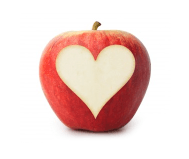Hey guys,
So since starting my Nutrition program at YSF… I am getting a lot of similar questions from my clients. Because these are probably issues you struggle with as well … I figure why not write a blog post about it. So protein… Its everywhere… Just like low fat was marketed in the 90’s Hi protein.. is place on every label as a marketing hype for healthy foods.
What I want to discuss is what protein is … the benefits of protein and where you can get it in healthy forms.
So what is protein?
Protein is a nutrient required for building, maintaining, and repairing tissues, cells, and organs throughout the body. When you eat protein, it is broken down into the 20 amino acids that are the body’s basic building blocks for growth and energy. The amino acid tryptophan influences mood by producing serotonin, which can reduce symptoms of depression and anxiety and improve overall cognitive function.
Most animal sources of protein, such as meat, poultry, fish, eggs, and dairy, deliver all the amino acids your body needs, while plant-based protein sources such as grains, beans, vegetables, and nuts often lack one or more of the essential amino acids. However, that doesn’t mean you have to eat animal products to get the right amino acids. By eating a variety of plant-based sources of protein each day you can ensure your body gets all the essential amino acids it needs.
So what are the benefits?
Protein gives you the energy to get up and go—and keep going. While too much protein can be harmful to people with kidney disease, diabetes, and some other conditions, eating the right amount of high-quality protein:
1.Keeps your immune system functioning properly, maintains heart health and your respiratory system, and speeds recovery after exercise
2.Is vital to the growth and development
3.Can help reduce your risk for diabetes and cardiovascular disease
4.Can help you think clearly and may improve recall
5.Can improve your mood and boost your resistance to stress, anxiety, and depression
6.May help you maintain a healthy weight by curbing appetite, making you feel full longer, and fueling you with extra energy for exercising.
7.Maintain healthy skin, nails, and hair
8.Build muscle
9.Maintain lean body mass while dieting
While most people eating a Western diet get sufficient quantity of protein each day, many of us are not getting the quality of protein we need
All protein is NOT created equal so beware
While some processed or lunch meats, for example, can be a good source of protein, many are loaded with salt, which can cause high blood pressure and lead to other health problems. Processed meats have also been linked with an increased risk of cancer, likely due to the substances used in the processing of the meat.
The key to ensuring you eat sufficient high-quality protein is to include different types in your diet, rather than relying on just red or processed meat.
So what are some good Hi quality proteins to eat?
1. Fish.. I am allergic to fish so I personally don’t eat it.. but its an awesome source of protein. But canned tuna is awesome for on the go. And grilled salmon is one of the best clean protein sources out there
2. Chicken and turkey .. now THIS I load up on…
3. Dairy .. I opt for yogurt, almond milk, and sometimes cheese but beware of added sugar in low fat yogurts and flavored milk
4. Beans.. Beans are packed full of both protein and fiber…two forgone special on those ones.
5. Nuts and seeds… great source of protein fiber and “good ” fats. Just beware they are very calorie dense so watch your portions.
6. Tofu and soy products are excellent red meat alternatives.
So how can I get more protein in my diet?
Reduce the amount of processed carbohydrates you consume—from foods such as pastries, cakes, pizza, cookies and chips—and replace them with fish, beans, nuts, seeds, peas, chicken, dairy, and soy and tofu products. Also Snack on nuts and seeds instead of chips, replace a baked dessert with Greek yogurt, or swap out slices of pizza for a grilled chicken breast and a side of beans.
So what about bars and shakes?
Protein supplements come in various forms including powders you mix with milk or water, pre-mixed, ready-to-drink shakes, or in bars. The most common types of protein used are whey, casein, and soy. Whey and casein are milk-based proteins, while soy is the better choice for vegans or anyone with a dairy allergy.
Safety concerns. Protein supplements may not be safe for older people with renal disease or people who have recently undergone surgery on the digestive system. Some ingredients may even interact with prescription medication, so check with your doctor or pharmacist before using.
Drink plenty of water to stay hydrated and make sure you’re getting enough calcium in your diet.
Look out for extra ingredients. Many protein bars are packed with carbs and added sugar.
So thats the deal on protein… If you are struggling to lose weight and are ready to move forward with anew meal plan in addition to daily accountability feel free to text at 732-331-5859 or email me at yvettebrowneyes@aol.com
xoxo


